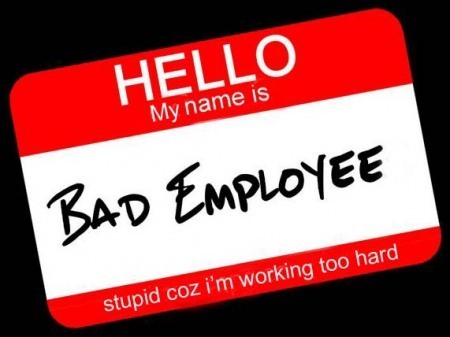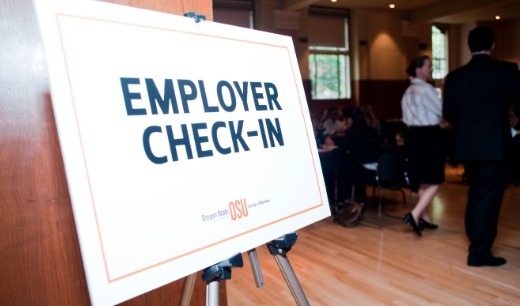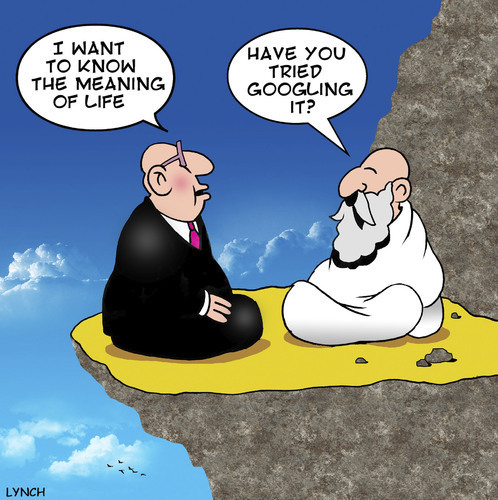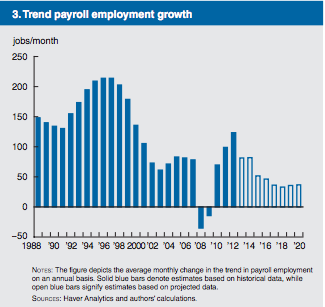Marty Nemko's Blog, page 426
December 5, 2013
On Boredom
 A couple of my clients rescheduled last-minute so I found myself this morning with a rare not-busy few hours. Boredom set in instantly.
A couple of my clients rescheduled last-minute so I found myself this morning with a rare not-busy few hours. Boredom set in instantly.So I decided to pace the room and see what thoughts emerged. Here's what emanated. Perhaps you might find something in them of use:
It's amazing how important being needed and busy is, at least for some people. Relaxing and smelling the roses for more than a little time feels like a waste, not restorative, a waste. Life feels like it should, as much as possible, be about productivity, contribution.Busy people contemplating retirement, beware. It may be enticing to envision mornings lingering over a cup of coffee, reading the news, and organizing your living space, but that well may get old. Retirement tends to be like the roach motel: you can check in but you can't check out. Do I want to write another how-to book? No. I think people get more benefit per hour from reading article-length advice. Do I want to do more volunteer work? No. My seeing pro-bono clients, speaking for free to groups of unemployed people, and significant cash donations feel like enough. I worry that my charitable donations won't do enough good. I like funding unpopular causes that hold promise of making a huge difference, like education for the gifted and understanding the biological basis of intelligence. But my money is merely a drop of water into an ocean. Is there a better use of my money? Is there something new I want to do? No, I just want to do a good job at what I already do: career and personal coaching, writing my USNews.com column and this blog, my radio show, being a good husband, answering all my email, being kind where I can, direct when it's wiser. Yes, that's enough.The New York Times reported yesterday that hospitals kill 440,000 people a year. In a few years when all those millions of high-need, low-paying people join the health care rolls thanks to ObamaCare, including the 11 million illegals when they become legal through "comprehensive immigration reform," many more will die--not just from the hospitals being overwhelmed but lack of access to doctors, MRI machines, operating rooms, etc. Ironic that not only am I subsidizing their health care, I have a greater chance of dying because masses of people came to the U.S. illegally.Despite being so disciplined about everything else, why I can I not stop overeating? I really should lose those 20 pounds, dammit.Those are my musings during today's boring few hours. Care to share yours?
Published on December 05, 2013 11:59
December 2, 2013
(Some) Employees: Bah, Humbug!
 My last week's contribution to USNews.com was (Some) Employers, Bah Humbug! This week, it's (Some) Employees: Bah Humbug!
My last week's contribution to USNews.com was (Some) Employers, Bah Humbug! This week, it's (Some) Employees: Bah Humbug!
Published on December 02, 2013 09:14
November 29, 2013
Dying Well
 I just put my mom in hospice and felt moved to write this.
I just put my mom in hospice and felt moved to write this. At some point, we start thinking more about dying. Perhaps it’s when you get a serious diagnosis or your last parent dies leaving you next on the conveyor belt. In my case, as a lifelong hypochondriac and catastrophizer, I’ve been thinking about it since I was a child, a half-century ago.
What might dying well look like?
I suppose it starts with living well. If we are aware of our mortality and that time is our most valuable possession, we’re more conscious how we spend our time: Should we work more, less, or on something else? Spend more or less time with certain people?
It’s probably time to make a will or, to avoid probate, a trust. Even if you’re poor, to whom or what organization do you want to leave your assets? Yes, you might want to leave it all to your family but it may be worth asking yourself if a charity or another individual might make better use of the money? Would leaving a substantial sum to a family member encourage sloth or profligacy?
Your will/trust should include an advance medical directive. For example, when you have an irreversible disease and are in significant pain, do you want extraordinary measures to keep you alive, for example, when you no longer can swallow, intubating you so you can be fed with a feeding tube? Or would you prefer hospice, which provides comforting drugs and other palliatives to make the end of life more peaceful?
Your will should also name a person to make medical and financial decisions in case of your incapacity or death. Think hard about whom you’d most trust. It may or may not be your closest relative.
It may feel good for you to include in your will a letter to your family and friends, perhaps reminiscences, lessons learned, and suggestions for them.
Although we may know some people who are vigorous and sharp well into old age, most people do experience at least some decline. Part of dying well is to not beat yourself up too much when, for example, you forget things that you would have remembered when you were younger. Easier said than done. No easier but also helpful is accepting that senescence is part of the natural order of things.
As we get older, most of us become more set in our ways, resistant to change. But is there something new you want to do? Many people want to travel, but change can occur from within your own home: a new hobby, volunteer activity, job, business, or attitude. Changing the latter may be tougher than even accepting aging.
Some people choose to tell others about their health problems. Others keep them as private as possible. It may be an act of generosity to not burden people with your worries unless they can help and you want their help.
Then there’s the decision of when to fight the good fight and when to accept that the chances of winning are too small. As the song, The Gambler, says, “You gotta know when to hold ‘em, know when to fold ‘em.” For example, should you keep fighting for your political beliefs? To rapproch with a relative? To stay alive?
We still don’t allow people to decide when to die. That strikes me as a terribly unfair intrusion of government into one of our most personal decisions. Fortunately, some physicians will give a terminally ill person a final cocktail of tranquilizers and sleeping pills. And if you don’t have such a physician, a right-to-die group called the Final Exit Network makes available a painless way to go.
This article hasn't been fun to write but I hope it might help you or someone you love to die well.
Published on November 29, 2013 23:15
November 25, 2013
(Some) Employers: Bah, Humbug!
 Of course, some employers are great, better than most employees.
Of course, some employers are great, better than most employees.But today's today's installment in my USNews.com Bah series focuses on the baddies: Employers. Bah Humbug!
Published on November 25, 2013 10:42
November 24, 2013
Four Approaches to the Life Well-Led
 Here's an advance look at my next column for the Mensa publication, The Intelligencer. I haven't submitted it yet so I'd welcome your feedback and suggestions.
Here's an advance look at my next column for the Mensa publication, The Intelligencer. I haven't submitted it yet so I'd welcome your feedback and suggestions.Four Approaches to the Life Well-Led
I see four approaches to living the life well-led: pursue happiness, serve God, serve society, and pursue balance. Here are pros and cons of each:
Pursue happiness. Obviously, choosing what makes you happy leads to an enjoyable life. It may make you better adjusted and energized and able to do more good things for those around you. And you can define happiness broadly. You might be “happy” eating, having sex, and watching Woody Allen movies but that might not comprise a life optimally led. So your definition of happiness might include, for example, the contentment that comes from being productive, from doing good—whether as a good accounts payable clerk, cancer researcher, or school volunteer to provide badly needed enrichment for intellectually gifted kids.
A limitation of the pursue-happiness approach to the life well-led is that you’re less likely to do worthy but unpleasant tasks, for example, diving into icy waters to save a drowning person or be a Mother Teresa, willing to endure the stench of feces in the Calcutta streets and having her ankles constantly bitten by scorpions so you can save lives. Of course, there are more common examples: I know a top hand surgeon who, because he’s been doing that for three decades, would find it much more fun to play the clarinet a lot but recognizes that his time on earth would have made a bigger difference by choosing to spend evenings and weekends seeing patients than playing Benny Goodman tunes.
Serve God. Outside of the Bay Area, religion is big, often the prime guiding force behind people’s lives. And it’s easy to understand why. Most people need rules. Religion provides them. Most people need fear and reward to motivate them to follow rules. Religion provides them: heaven and hell. Most people need support in life’s tough times: The belief in a loving God provides that. And, net, people who follow religions’ rules do live a life that leads to more world good than those who don’t. In the absence of religion, many of these people would live less contributory lives.
A downside of religion is that it’s too black-and-white: there’s only one way. For example, the Bible says, “Thou shalt not steal.’ It doesn’t allow one even to consider, for example, a poor person stealing a drug from a rich pharmacist to save their spouse’s life. Sure, individuals can perceive what they want in religion: Some say the Bible condemns homosexuality. Others say the Bible endorses it. Some say that the Koran encourages peaceful behavior, others that it demands jihad against the infidels. But net, a God-centric approach to living the life well-led suffers from a narrow definition of acceptable behavior.
Another weakness of the serve-God approach is that it urges passivity. For example, the New Testament stresses surrender to God, that the meek shall inherit the earth, and to trust God above reason.
Serve society. This is the utilitarian approach: Ongoing, you decide which activity is most likely to make the biggest difference to your sphere of influence, For example, a ditch digger can decide whether, during a break, to have a cigarette or to teach a novice how to dig a ditch more easily. It would seem that the person who ongoing, makes decisions based on what’s best for his or her sphere of influence, will have left the world better than the person whose guiding principle was pursuing happiness or serving God.
A way to enhance utility is to focus on what few others can or do. For example, I am a champion of the intellectually gifted at a time when most focus on “the least among us.” That way, I feel I make a bigger difference that if, for example, I focused on other causes I believe in: abortion rights, which already has enormous support. I’d merely be a grain of sand on a beach.
A downside of the serve-society approach to life is that it leads to a less pleasurable existence. This approach doesn’t give any brownie points to fun. Sure, adherents to the serve-society model may deviate from it and watch that Woody Allen movie but when life is done, devoted serve-society people go to the grave experiencing less pleasure than do others.
And for some people, focusing so much on doing good for others could lead to burnout, rendering them to far less good than if they were moderate. However, at least among the people I know, you’re unlikely to burn out even from a lifetime of long work weeks as long as you’re working on something of value, are good at what you do, and have a measure of control over your work tasks. I’ll be 64 in June, been working 60+ hours a week for my entire life, and feel as energized as ever.
Another downside of the utilitarian approach is its limited impact. With seven billion people on the planet, your likelihood of making a big difference is small. But it strikes me that a life of contributing to even one’s tiny sphere of influence is better than a life in which you pursue a pleasure-centric life because your sphere of influence is too small.
Strive for balance. Many people believe their best shot at the ideal life is to work moderately and play moderately dividing your time among serving yourself, God, and society. Or as many of our parents say, “Moderation in all things.”
The downside of that is that it assumes that all those goals are of equal value. Can one say that a week on the beach is as valuable as a week mentoring Mensa kids?
Now it’s your turn. In light of the above (and anything else,) do you want to write a few words summarizing the approach you’d like to guide your life?
Published on November 24, 2013 10:19
November 22, 2013
Proposal for a Sex Museum
 I think a sex museum, if done well, would be a huge success. A few exist: New York, Japan, Amsterdam, and Berlin but they're only fair to good. But even if they were excellent, there's certainly room for an outstanding one in a city like San Francisco.
I think a sex museum, if done well, would be a huge success. A few exist: New York, Japan, Amsterdam, and Berlin but they're only fair to good. But even if they were excellent, there's certainly room for an outstanding one in a city like San Francisco.I was part of the team that was planning such a museum in San Francisco but it died because academics dominated the programming committee and insisted on static, usually abstruse-historical exhibits. Only an academic could make sex sterile.
So I thought I'd share my vision for the museum here in hopes someone realizes its potential and makes it happen. If I weren't so busy, I'd do it. I am open to investing in it.
Today, government places so many restrictions and regulations on private projects, I believe it's best if government could be convinced to make it a public-private partnership, ideally with the government giving a $1 a year lease on perhaps 20,000 square feet of property located in the tourist area of a major tourist city such as San Francisco.
Of course, the government could refuse but I'd make the case that two of its major priorities--increasing tourism taxes and increasing acceptance of alternative sexual orientations--would be addressed by their partnering with the museum. I believe, but am not sure, there's precedence for such a partnership. There are a number of lavish yet poorly attended minority-focused museums and other attractions in the tourist area of San Francisco that would seem impossible to have been opened and run for years without significant government/taxpayer expenditure.
The San Francisco Sex Museum would consist of approximately 20 "experiences," each of which would be one to three minutes long. Many would be interactive. Examples:
A digital poll of sexual practices in which you vote on the spot: What you do? What you've done? What you'd like to do? What you approve and disapprove of?How much do you know about your partner? (a Newlywed-Game-type quiz for sexual partners.)What makes someone sexy? An interactive quiz and experience.An IMAX video experience: A crosscultural history of sexual laws and practices from antiquity to today, Asia to Africa to America.Of course, the museum store would sell all sorts of erotica: books, videos, sex toys, etc. The museum cafe would include supposed aphrodisiacs and all menu items would have erotic titles.
What do you think?
Published on November 22, 2013 09:01
November 19, 2013
Knockout "Game:" A Dangerous Trend Among Minority Teens

The media's censoring of the politically incorrect is descending to ever lower lows.
Becoming epidemic is a game played by minority (mainly Black) teens called Knockout. How does it work? Simple: They stop whites at random and try to knock them out in one punch.
The national media has virtually ignored this most disturbing trend. Do you think the media would ignore it if white teens sought out random minorities to knock out? Would President Obama, Al Sharpton and Jesse Jackson be silent?
No surprise, getting an article published in the major media required no less than the eminent conservative (the horrors!) Stanford/Hoover syndicated Black columnist Thomas Sowell. It is his column today. HERE is the link. And HERE is a link to an article with videos in the New York Daily News. HERE is a link to a book, "White Girl Bleed a Lot," which documents 500+ such attacks, with links to YouTube videos of them.
I don't know what the solution is but censorship certainly doesn't help any more than it would have helped to censor excoriation of the Ku Klux Klan. To motivate a serious effort to solve a problem, we must first get the broad public to realize there is one.
Published on November 19, 2013 09:35
Knockout "Game:" A Dangerous Trend Among Black Teens

The media's censoring of the politically incorrect is descending to ever lower lows.
Growing in popularity is a game played by Black teens called Knockout. How does it work? Simple: They stop non-Blacks at random and try to knock them out in one punch.
The national media has virtually ignored this most disturbing trend. Do you think the media would ignore it if white teens sought out random non-whites to knock out? Would Al Sharpton and Jesse Jackson be silent?
No surprise, getting an article published in the major media required no less than the eminent conservative (the horrors!) Stanford/Hoover syndicated Black columnist Thomas Sowell. It is his column today. HERE is the link. And HERE is a link to an article with videos in the New York Daily News. HERE is a link to a book, "White Girl Bleed a Lot," which documents 500+ such incidents with links to YouTube videos of them.
I don't know what the solution is but censorship certainly doesn't help any more than it would have helped to censor excoriation of the Ku Klux Klan. To motivate a serious effort to solve a problem, we must first get the broad public to realize there is one.
Published on November 19, 2013 09:35
The End of Jobs: What Happens Next?
 Here's how the job diminution might play out.
Here's how the job diminution might play out.1. Ever fewer jobs require people, least of all, expensive-to-hire Americans. The jobs that remain in the U.S. will increasingly be low-pay crap jobs or high-pay intellectually difficult jobs.
Technologies like autonomous driving will put millions of truck, train, bus, and taxi drivers out of a job. Fast-food workers who wrested higher salaries will find their victories to be Pyrrhic as companies find it cheaper and more reliable to use robotic servers and preparers as is already occurring in some fast-food restaurants in Japan and Europe.
Even high-level jobs like doctor, lawyer, and accountant will be done largely by computerized expert systems.
U.S. wages will decline toward the world average of $10,000 a year.
2. The growing number of poor people will result in our electing politicians who will "soak the rich" more and use the money to transfer dollars to the poor and to pay for single-payer health care. That will forestall major increases in crime and rioting.
Despite the redistribution, people will learn to live on much less--like 100 square feet per person. Many people will be forced to give up their car in favor of mass transit. Recreation will descend from $100 football tickets and 8-day/7-night fly-away vacations to at-home TV watching and staycations. Wal-Mart and thrift stores will be go-to stores for all but the 1%ers.
Even though the last thing the U.S. needs is a workforce with less motivation and impaired memory, pot will be legalized nationwide. After all, the dispirited populus needs something to dull their pain.
3. Further taxing the rich and businesses can go only so far before too many businesses go out of business or move their business to a low-tax country. That would be the tipping point--- a big increase in crime, rioting, and substance abuse.
4. In desperation, the heretofore anti-business public schools and colleges will feel forced to train more entrepreneurs so more sustainable jobs can be created. That plus unanticipatible job-creating technologies will provide the beginning of a rebound, who knows how big?
Perhaps this scenario is unduly negative. After all, for millennia, humankind has prevailed and the long-term trend has been worldwide improvement in quality of life. Let's hope it continues.
Dear reader: your thoughts?
Published on November 19, 2013 01:44
November 18, 2013
Job Hunting: Bah, Humbug!

The hiring process is a showcase of humankind's weaknesses, with. both employers and job hunters guilty. That's the topic of today's installment in my USNews.com "Bah, Humbug" series: Job Hunting: Bah, Humbug! HERE is the link.
Published on November 18, 2013 13:25
Marty Nemko's Blog
- Marty Nemko's profile
- 4 followers
Marty Nemko isn't a Goodreads Author
(yet),
but they
do have a blog,
so here are some recent posts imported from
their feed.



